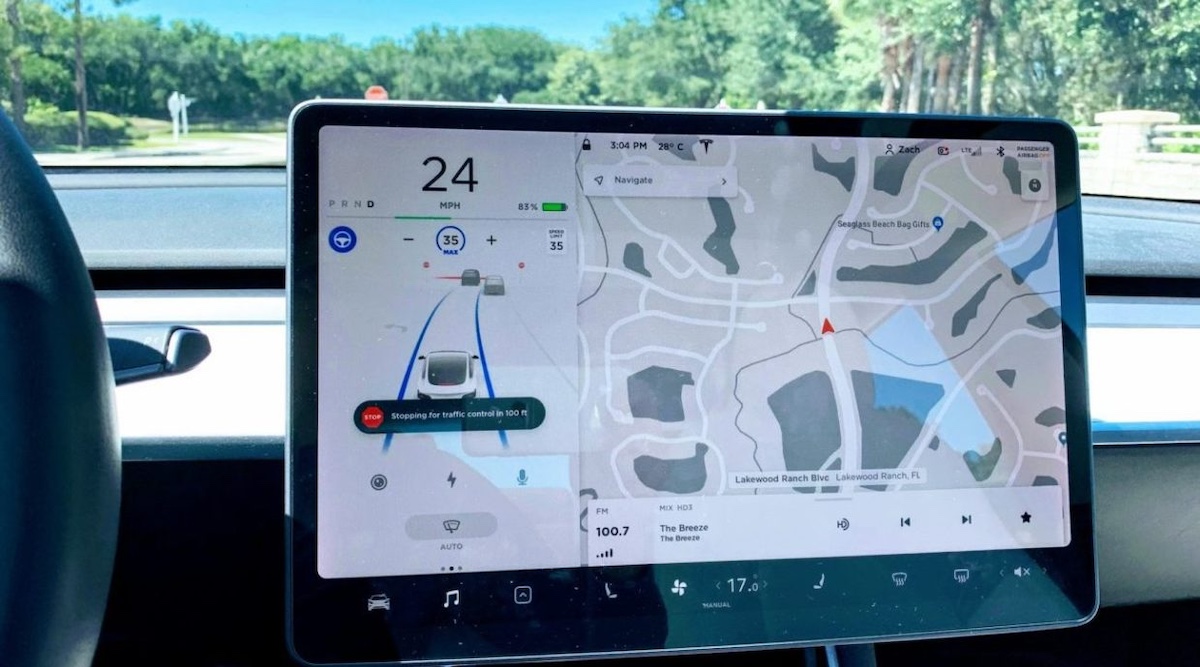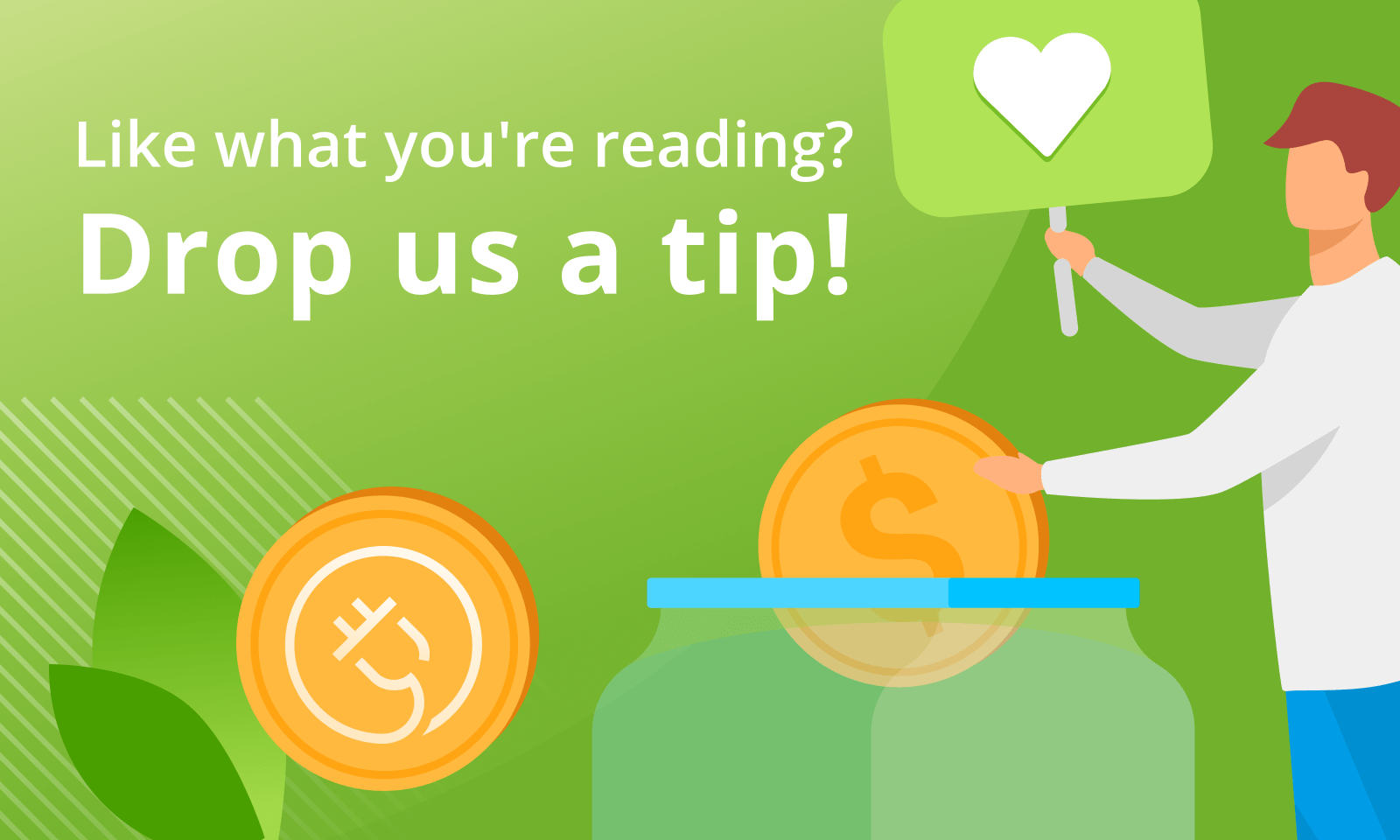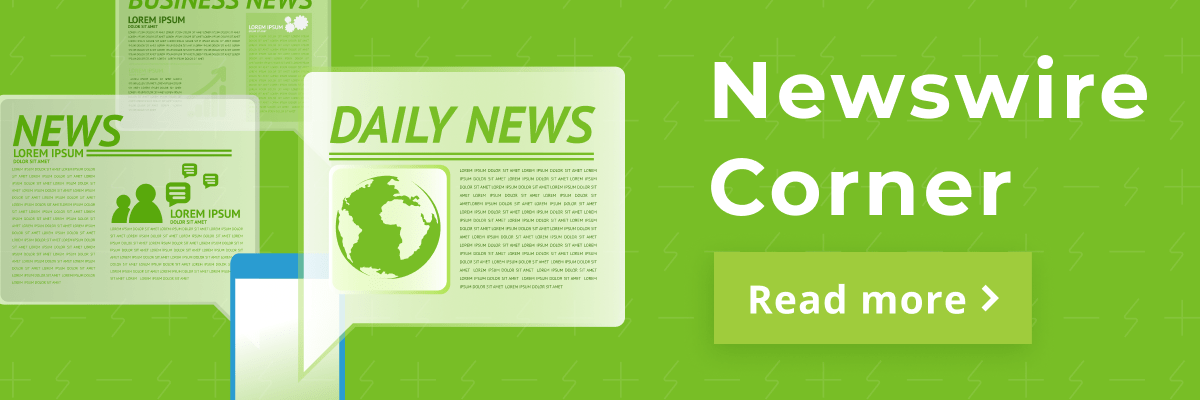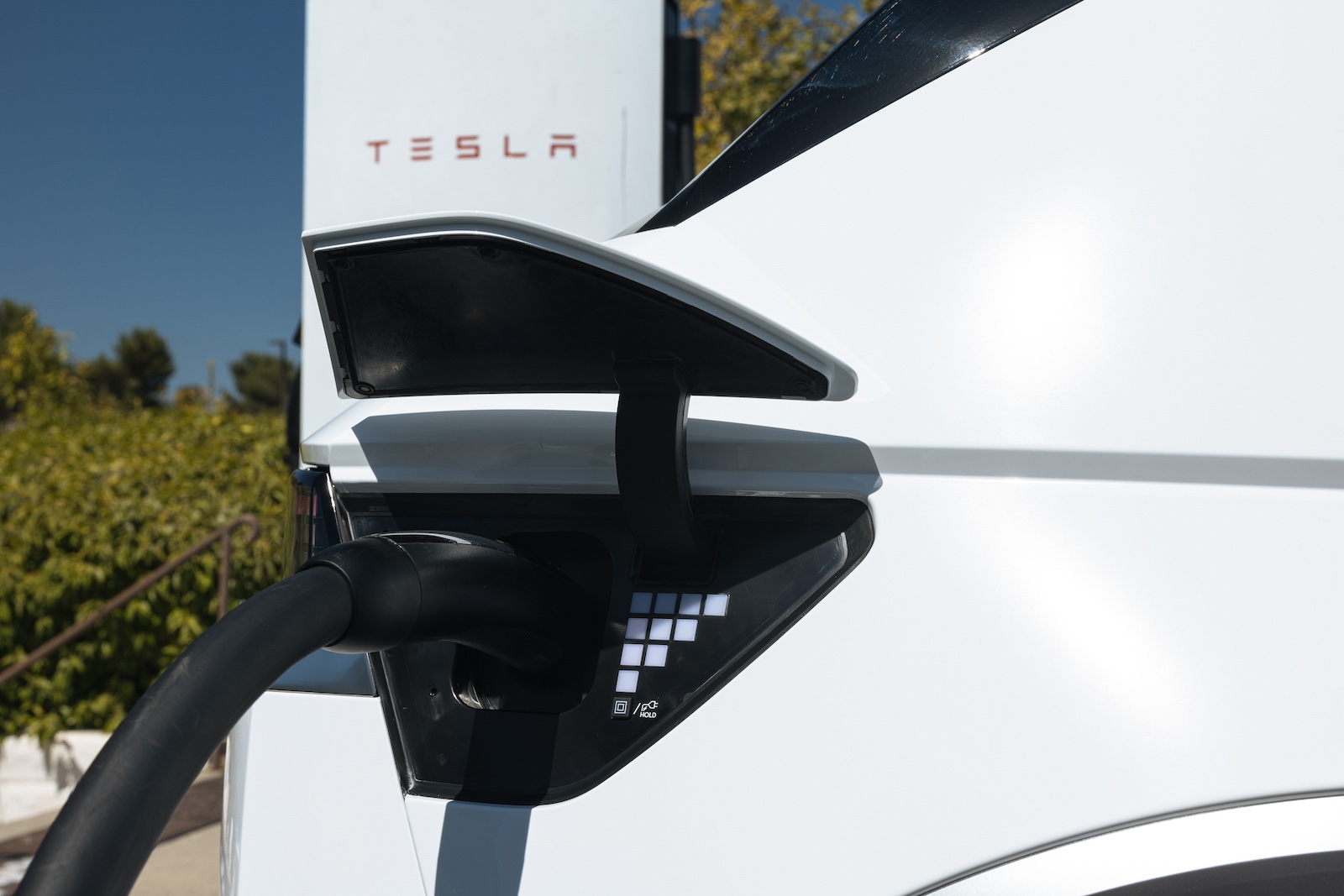Sign up for daily news updates from CleanTechnica on email. Or follow us on Google News!
The Beijing auto show is going on this week and Elon Musk made a quick trip to the Chinese capital, but not to attend the show. Instead, he had a sitdown with Premier Li Qiang, the Chinese Communist Party secretary for Shanghai, who gave Tesla a big boost by helping to get its factory in that city up and running in about a year. Bloomberg reports that Musk got what he wanted — an agreement in principal to let his company deploy its Full Self Driving (Supervised) system in China, which is the world’s largest new car market.
The approval, which we said last week might be coming soon after hints from Elon Musk on Tesla’s quarterly shareholder call, was granted under certain conditions, according to a person with knowledge of the matter, who asked not to be identified because details of all the criteria aren’t yet clear. But it is understood that Tesla managed to overcome two of the most important hurdles standing in the way of approval for its self driving technology. First, it agreed to a mapping and navigation deal with Chinese tech giant Baidu. Second, it agreed to requirements from the Chinese government that determine how it handles data security and privacy issues.
Tesla Data Collection At Issue
The data security provisions include protocols for how a vehicle collects “sensitive personal information” and whether a driver can easily stop a car from collecting data, the China Association of Automobile Manufacturers said in a statement late Sunday. Tesla’s cars have been banned from Chinese military compounds and some other government venues in the past over data collection concerns. CleanTechnica readers will recognize that the US government has similar concerns about Chinese made cars coming to America and spying for China while driving.
Tesla once topped the sales charts in China, but its market share has slipped from 10.5% in the first quarter of 2023 to 6.7% in the first quarter of 2024, according to Bloomberg calculations based on China’s Passenger Car Association data. Many Chinese auto manufacturers are offering models with advanced self-driving (ahem, driver-assist) features. Those companies and Tesla see those systems as new profit centers that will continue to produce revenue long after the cars are delivered to their new owners. That extra income could offset some of the low margins associated with selling cars in a brutally competitive market.
Approval for FSD in China would be a major boost for Tesla, which is coming off its first year-over-year decline in quarterly revenue since 2020. Musk’s surprise China visit is “a watershed moment,” Wedbush Securities senior analyst Dan Ives said in an interview with Bloomberg Television. “This could open up FSD in China, which I view as unlocking what really could be the golden opportunity for them.”
Teaming with Baidu, which is one of only 20 qualified suppliers with China’s top level mapping credentials that can be applied to driver assistance functions, will allow Tesla to tap the Chinese company’s lane level navigation and mapping services, Bloomberg says. Note that Tesla has already been using Baidu for in-car mapping and navigation since 2020. But we’ve also got some updates from the US.
Clouds On The Horizon For Tesla In The US

The good news from China over the weekend partially offsets less favorable news for Tesla in the US. Hypebeast reports that a recent comprehensive investigation by the National Highway Traffic Safety Administration (NHTSA) found that the Tesla Autopilot and Full Self Driving systems have been implicated in hundreds of vehicle crashes and numerous fatalities. Analyzing incidents from January 2018 to August 2023, the agency documented 956 crashes involving Tesla vehicles equipped with these features. Those crashes resulted in 29 deaths. The research reveals significant safety concern about the inability of those systems to insure that drivers remain alert to the road ahead.
A notable incident in March 2023 involved a Tesla Model Y operating on Autopilot at highway speeds, which struck a North Carolina student just as he was stepping off a school bus. The collision caused life threatening injuries, which necessitated an emergency airlift to a hospital. This case highlights a pattern observed in the NHTSA’s report where drivers often rely too much on Tesla’s automation, which may not adequately respond to changing road conditions, which can lead to dangerous situations.
Despite new software updates designed to bolster system warnings and keep drivers attentive, NHTSA continues to question the efficacy of these updates and has initiated further investigations to evaluate their adequacy. The agency says it is looking into 20 new crashes involving Autopilot and FSD since those updates were installed.
On April 19, 2024, a Tesla driver in Snohomish County, Washington, struck and killed a motorcyclist, according to records obtained by CNBC and NBC News. The driver told police he was using Autopilot at the time of the collision. The NHTSA findings are the most recent in a series of regulator and watchdog reports that have questioned the safety of Tesla’s Autopilot technology, which Tesla claims is a key difference between its automobile and those offered by other car companies. On its website, Tesla says Autopilot is designed to reduce driver “workload” through advanced cruise control and automatic steering technology.
Calls For New Regulations
Following the release of the NHTSA report, Senators Edward Markey of Massachusetts and Richard Blumenthal of Connecticut issued a statement calling on federal regulators to require Tesla to restrict its Autopilot feature “to the roads it was designed for. We urge the agency to take all necessary actions to prevent these vehicles from endangering lives,” the senators said. In its Owner’s Manual, Tesla warns drivers not to operate the Autosteer function of Autopilot “in areas where bicyclists or pedestrians may be present,” among a host of other warnings.
Earlier this month, Tesla settled a lawsuit from the family of Walter Huang, an Apple engineer and father of two who died in a crash when his Tesla Model X with Autopilot features switched on hit a highway barrier. Tesla has sought to keep the terms of the settlement secret.
 Chip in a few dollars a month to help support independent cleantech coverage that helps to accelerate the cleantech revolution!
Chip in a few dollars a month to help support independent cleantech coverage that helps to accelerate the cleantech revolution!
The issue of whether AP and FSD are safe has generated millions of words here at CleanTechnica and thousands of comments from readers. Some believe the systems do more harm than good and subscribe to the theory that “to make an omelet, you gotta break a few eggs.” Others take the opposite view, arguing that airlines and elevator companies don’t tout their low incidence of fatalities.
The issue about whether software is superior to the human brain may never be fully resolved, but some observers are concerned that Tesla does not release its data for independent review, which is a little like battery companies announcing bold new breakthroughs that have not been independently validated. If we are skeptical of such announcements from battery manufacturers, why are we so willing to take Tesla at its word without third party verification?
In 2021, Elon Musk claimed on social media, “Tesla with Autopilot engaged now approaching 10 times lower chance of accident than average vehicle.” Philip Koopman, an automotive safety researcher and Carnegie Mellon University associate professor of computer engineering, told CNBC he views Tesla’s marketing claims as “autonowashing.” He also said in response to NHTSA’s report that he hopes Tesla will take the agency’s concerns seriously moving forward.
“People are dying due to misplaced confidence in Tesla Autopilot capabilities. Even simple steps could improve safety. Tesla could automatically restrict Autopilot use to intended roads based on map data already in the vehicle. Tesla could improve monitoring so drivers can’t routinely become absorbed in their cellphones while Autopilot is in use.”
The Takeaway
Tesla and Musk suggested during the company’s latest earning call that they are betting the company’s future on autonomous driving. “If somebody doesn’t believe Tesla’s going to solve autonomy, I think they should not be an investor in the company. We will, and we are,” Musk said.
Those who follow Tesla have been hearing the same refrain since 2016. Some continue to preach the gospel according to Musk while others think Elon is like the boy who cried wolf. There is little agreement between the two groups and all we know for sure is that one of them is right. Which one? “We’ll see,” said the Zen master.
Have a tip for CleanTechnica? Want to advertise? Want to suggest a guest for our CleanTech Talk podcast? Contact us here.
Latest CleanTechnica.TV Video
CleanTechnica uses affiliate links. See our policy here.





